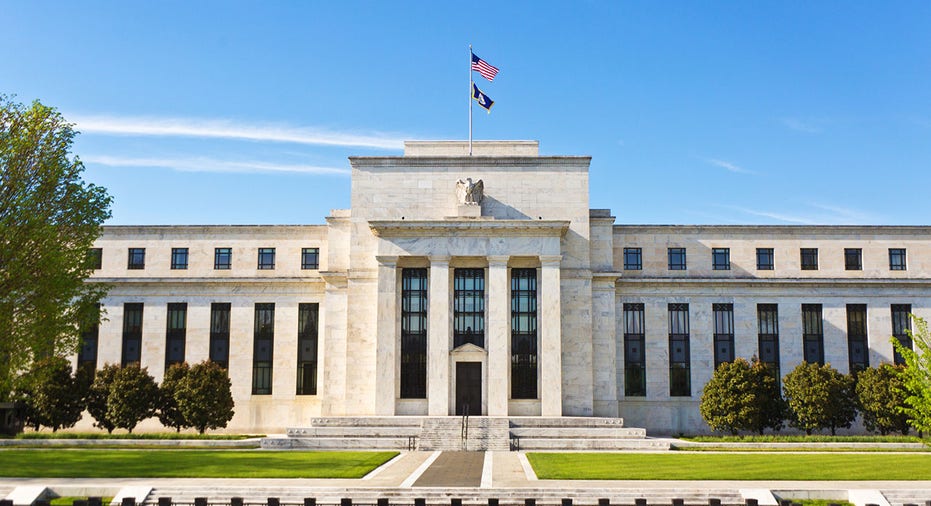Jerome Powell signals Fed could speed up tapering to bond-buying program
Fed prepares to potentially raise federal funds rate in 2022

Federal Reserve Chairman Jerome Powell testified before Congress, saying it may be time to stop seeing inflation as temporary. (iStock)
The Federal Reserve is retiring the word "transitory" when describing today’s surging inflation rates, Federal Reserve Chairman Jerome Powell said Wednesday in his testimony before the Senate Banking Committee.
"We tend to use it to mean that it won’t leave a permanent mark in the form of higher inflation," he said. "I think it’s a good time to retire that word and try to explain more clearly what we mean." Powell added that the Fed was wrong about its original predictions for inflation, saying instead that it could last into the middle of 2022.
"Forecasting is not a perfect art, as you may have noticed," he said.
Rising inflation could cause the Federal Reserve to raise interest rates in 2022, before it previously anticipated. If you want to take advantage of interest rates while they remain at historic lows, consider refinancing your private student loans. Visit Credible to find your personalized rate and see how much you could save.
FED PREPARED TO RAISE INTEREST RATES IF INFLATION CONTINUES TO SURGE
Fed weighs interest rate hike timing
Currently, the Fed is set to reduce its $120 billion monthly bond-buying and asset purchases by $15 billion each month beginning in late November or December as the economy emerges from the coronavirus pandemic. However, the Central Bank is now discussing the possibility of speeding up its tapering process.
"It is appropriate, I think, for us to discuss at our next meeting, which is in a couple of weeks, whether it will be appropriate to wrap up our purchases a few months earlier," Powell said Tuesday. "In those two weeks, we are going to get more data and learn more about the new variant."
After ending its economic stimulus for the financial system, the Federal Open Markets Committee (FOMC) will be able to use other monetary policy tools to combat inflation, like raising the federal funds rate if inflation continues to rise and both the labor market and economic recovery remain strong.
"We will use our tools to make sure that higher inflation does not become entrenched," Powell said.
If you want to take advantage of low interest rates before the Federal Reserve begins raising rates, consider taking out a personal loan to consolidate other high-interest debt. Visit Credible to compare multiple lenders at once and choose the one that has the best rate for you.
Supply shortages put pressure on inflation
Powell explained that economists were relying on lower inflation levels because they didn’t account for supply shortages that continue to put pressure on inflation. Now, the omicron variant of the coronavirus could cause further disruptions.
"I think what we missed about inflation was that we didn't predict the supply-side problems," he said. "And those are highly unusual and very difficult, very non-linear, and it's really hard to predict those things. But that's really what we missed. And that's why all of the professional forecasters had much lower inflation projections."
If you want to take advantage of low interest rates before the Fed begins raising rates, consider taking out a mortgage refinance to significantly lower your monthly home payments. Contact Credible to speak to a home loan expert and get all of your questions answered.
Have a finance-related question, but don't know who to ask? Email The Credible Money Expert at moneyexpert@credible.com and your question might be answered by Credible in our Money Expert column.




















